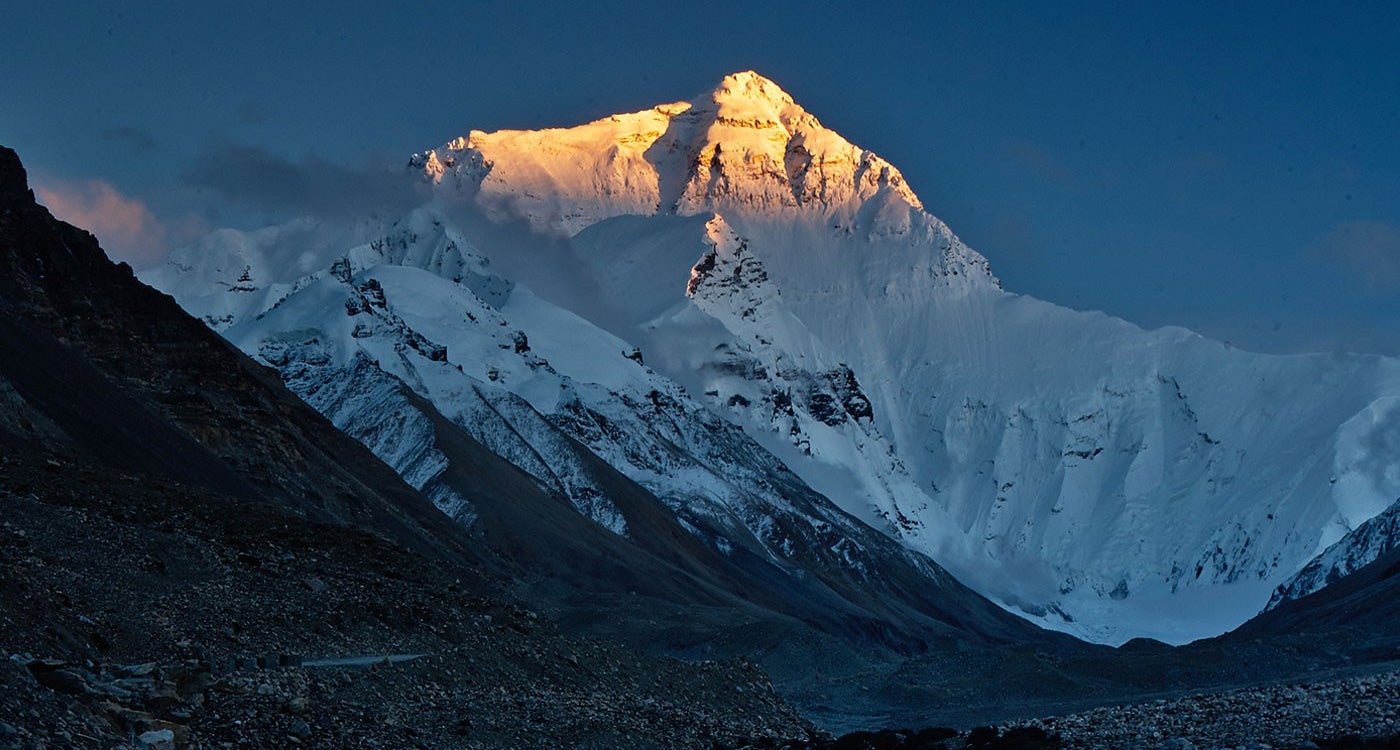
Firepot on the Moon
Omar Samra has wanted to be an astronaut since the age of seven. As the first Egyptian to climb Mount Everest, he is no stranger to extreme challenges — but space has always evaded him. Here, Olivia Lee writes about how he found adventure, conquered his fears, and came as close to the moon as he could, without ever leaving Earth.
Omar Samra wasn’t brought up to lead a life of exploration. He was born in Wimbledon during the tennis season, so his parents had hoped he’d become the Egyptian Boris Becker. Unfortunately, as an asthmatic child with a terrible backhand, sports never came easily. Still, he studied hard at school, graduating with a BA in Economics from The American University in Cairo, and landing a “cushy job” as an investment banker in London.
He often dreamed of exploring the world, but he’d been taught that a good, stable job was the measure of success. “I’d love to say the curiosity of embarking on a big adventure outweighed the confines of my daily life, but taking the decision to leave everything behind and embrace ‘uncertainty’ never came easily,” he says. He travelled — a cycling holiday here, a short weekend away there — but not for long, and always with the prospect of returning to the home comforts he’d grown accustomed to.
One day though, he realised life had become a little too predictable: “I could tell with reasonable certainty where I’d be in the next five years and it scared me. There was so much more I wanted to see and do.” With minor planning, he packed up his stuff and set out on what would become a 370-day trip, spanning 14 countries. He climbed mountains, slept in monasteries, hiked through jungles and got arrested by the Russian police, twice.
On his return, he tried to settle back into his comfortable city life, but something had changed. He was no longer content with a short weekend climb in the Alps. So when a friend emailed him about putting together an Everest team, he agreed immediately. That was how, in 2007, he became the first Egyptian to summit Everest, something he’d never have thought possible as a wheezy child kept up at night by asthma.
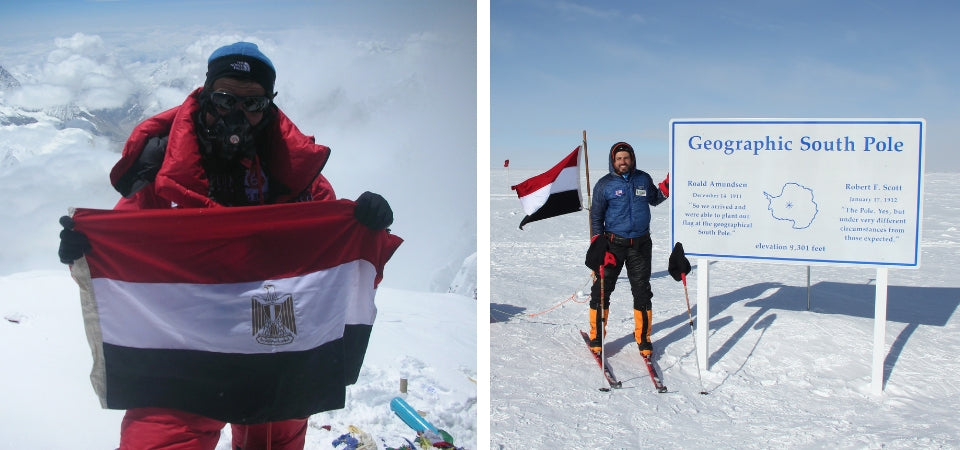
By 2015, Omar had become the first Egyptian to complete the Seven Summits — climbing the tallest mountain on each of the seven continents — and the first to ski to both the North and South Pole. He also survived a very near-death experience, when his boat capsized in the middle of the Atlantic as he rowed from the Canary Islands to Antigua. For 13 hours he floated in the frozen water, each passing minute making him lose faith that rescue was ever going to come.
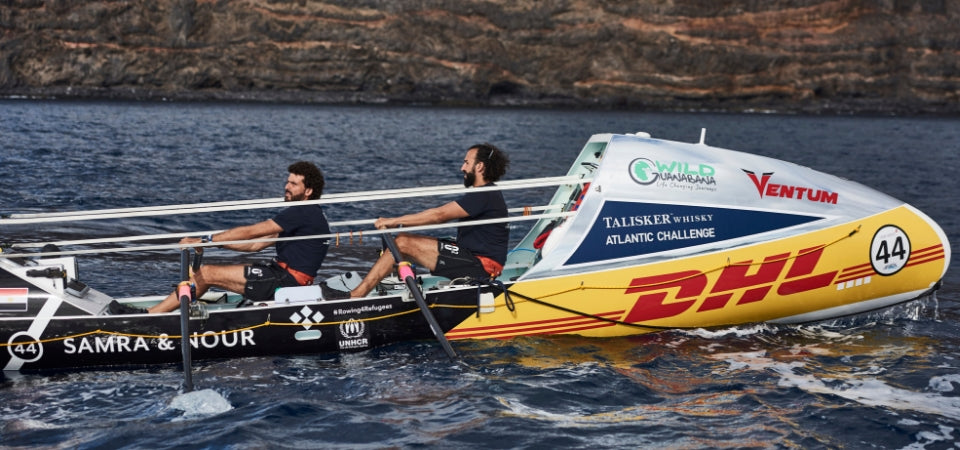
Space, though, was still an enigma. He’d wanted to be an astronaut since the age of seven, but having grown up in Egypt, he’d never had the opportunity to pursue it as a career (Egypt has no formal space programme like NASA or ESA). During his MBA, his heart had soared when he’d heard Richard Branson speak about Virgin Galactic — the company aiming to propel tourists into space. When Omar later realised a ticket would cost $250,000, he was deflated.
Space became a very real possibility in 2013. Omar was whittled down to the final 110 of over two million applicants in a competition held by space travel company XCOR Aerospace. After four days of rigorous challenges in the US, he was announced the winner. His prize would be a real space flight, taking him up towards the moon — the ticket was even handed to him by Buzz Aldrin. Unfortunately, Aerospace later went into receivership and the prospect of experiencing space was again whisked out from underneath him.
Omar heard about the Lunares Research Base from Dr Sarah Jane Pell, a woman he’d met during a space course at Embry Riddle Aeronautical University. The base, located in Poland, was created last year as a way to simulate the conditions of future space habitats on the moon — the first of its kind to be built in Europe. “I realised that even if I couldn’t actually go to space, I might still be able to contribute to the field of research on Earth,” he says. “While I’m not from a science or engineering background, my expedition experience works in my favour — being alone on a mountain or in the middle of the ocean teaches you a lot about isolation, extreme pressure and decision making.”
Dr Pell was recruiting a team for the Lunares Project, a 15-day experiment in which a team of six ‘astronauts’ would recreate a space mission, conducting research on ways to make life in outer space settlements a real possibility. Omar was chosen to be Vice Commander of the mission. “It might not have been actual space, but it was the next best thing,” he says.
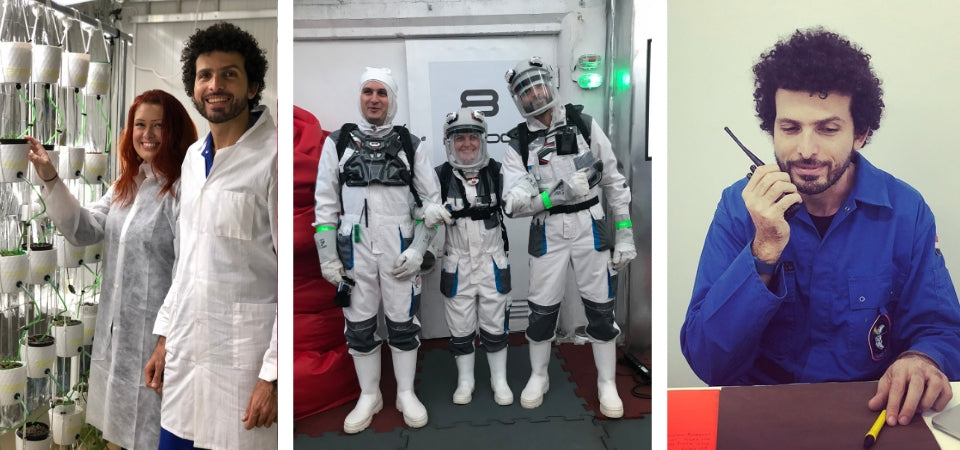
The Lunares Research Base is built in an old air force base in the Polish wilderness. The habitat — a genuine replica or what a space station looks like, complete with decompression airlocks, labs, dorm beds and a lunar-like outdoor terrain — stands inside an enormous dark hanger, into which no natural light can seep. While the anti-gravity and zero-oxygen conditions of the moon can’t be replicated due to financial constraints, the risks are simulated as real: should anyone step outside the space habitat without their helmet on, they’d be considered dead by the rest of the crew.
As Vice Commander, Omar’s job was to control the minute-by-minute schedule of each member of the crew, ensuring the research was conducted in a timely way, but also that everyone looked after themselves — spending 15 minutes under the UV lighting everyday, coming together to do exercise or yoga each evening, keeping morale high and so on.
“The experience is pretty disorentating,” says Omar. “You lose track of your circadian rhythm so you have no idea if it’s day or night. You live by the lights of the space station — when they’re white you feel wide awake and energetic, when they switch to purple you immediately want to fall asleep.” Everything was being constantly tracked and monitored — heart rates, blood pressure, sleeping patterns, dreams — in an attempt to understand the psychological effects of six people living in close confines with zero sunlight for 15 days.
As part of the research, the team simulated a loss of power — the lights went out, the machines failed and they had 10 minutes to don their suits in the pitch black before they’d be out of oxygen and officially ‘dead’. “Obviously you know there’s no real risk, and yet you feel like it’s actually happening — you panic,” says Omar. The team found that those who had practiced power cut simulations with virtual reality technology prior to the mission were able to act far more quickly and rationally than those that hadn’t — a suggestion that virtual reality training should become an essential part of space training in the future.
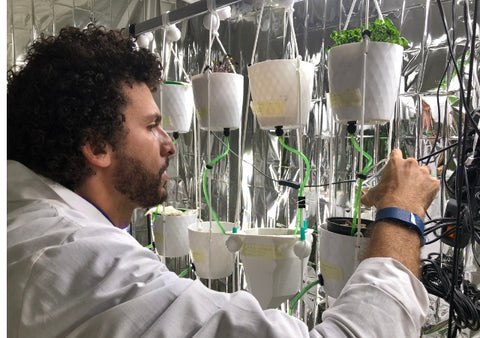
They also conducted experiments with plants, each member of the crew having brought seeds native to their own countries to try and grow in the onboard labs. They found that Omar’s seeds, hailing from the dry arable terrains of Egypt, worked especially well, with green edible shoots ready in just three days.
After more than two weeks in the dark, cramped compound, Omar and the rest of the crew were ready to get out. “It was a really tough experience,” he says. “It messes with your mind, your mood. I really missed the sunlight, and not being able to look up to see the sky.” As to whether the experience put him off ever going into space for real? “No way. Some companies have started offering private astronaut training now. I’m slowly building up my experience so that one day, when an opportunity to go into space really presents itself, I’ll be ready and waiting.”
Omar Samra and the members of the Lunares crew were fuelled by a range of custom-made Firepot breakfasts and main meals while inside the space habitat. While not on personal expeditions, Omar runs Wild Guanabana, an adventure travel company he founded that leads guests to the wild corners of the world. He also runs a Cairo-based children’s charity that his late wife, Marwa Fayed, began in 2010 as a way to share toys and books with the children of Cairo. After her passing, Omar changed the charity’s name from Cairo’s Toy Run for Orphanages to Marwa Fayed’s Toy Run in her honour.

